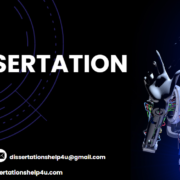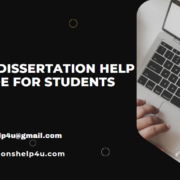PhD proposal-writing service in marketing
PhD proposal writing service in marketing
The journey to a PhD in marketing is an exhilarating climb, and the summit lies beyond a critical first hurdle: the research proposal. It’s a document that tests your mettle, demands clarity in your vision, and sets the stage for groundbreaking exploration. But crafting a proposal that captivates your committee and unlocks your research potential can seem like deciphering ancient runes. That’s where Dissertationshelp4u comes in, your sherpa on this ascent. Let’s read this blog “PhD proposal-writing service in marketing“.
Why Marketing Needs a Focused Lens:
Marketing is a multi-faceted jewel, with facets ranging from consumer psychology to branding strategy. Choosing your research niche within this vast landscape can be daunting. Dissertationshelp4u’s team of seasoned marketing PhDs understands this challenge. We act as your guide, helping you refine your research topic, ensuring its originality, relevance, and feasibility. Our experts delve into your passion, market trends, and current research gaps, guiding you towards a focused, impactful research question.
Building a Winning Proposal, Brick by Brick:
A persuasive proposal is much more than just words on a page. It’s a meticulously constructed edifice, each section a vital building block. Dissertationshelp4u provides bespoke support for each crucial element:
- Introduction: We help you hook your committee from the first sentence, clearly identifying the research gap and its significance.
- Literature Review: We navigate the academic jungle, ensuring your review is comprehensive, critical, and positions your research within the existing discourse.
- Methodology: We walk you through crafting a robust research design, outlining data collection methods, analysis techniques, and ethical considerations.
- Timeline and Budget: We help you create a realistic and feasible plan for your research journey, ensuring efficient resource allocation.
- References and Formatting: We ensure your citations adhere to impeccable academic standards and format your proposal to perfection.
Beyond the Proposal: A Supportive Hand on your Climb:
Dissertationshelp4u’s commitment extends beyond crafting a winning proposal. We provide ongoing support throughout your research journey, offering expert guidance on data analysis, literature review updates, and manuscript development. We’re your trusted partner, helping you navigate the academic terrain with confidence.
Focus on the Summit, Let Dissertationshelp4u Pave the Path:
Your PhD journey is a personal Everest, and your research proposal is the first challenging ascent. Don’t go it alone. Let Dissertationshelp4u be your guide, providing the expertise and support you need to reach the summit. Contact us today and take the first step towards conquering your marketing PhD.
Embrace the challenge, refine your vision, and conquer your PhD summit with Dissertationshelp4u. Your research masterpiece awaits!
This blog post is just a starting point. Feel free to modify it to reflect your company’s specific services, expertise, and unique value proposition. Consider adding testimonials from satisfied clients and relevant statistics about the success rate of your services.
Remember, the key is to showcase your expertise in marketing research and highlight how Dissertationshelp4u can empower aspiring PhDs to write winning proposals and embark on impactful research journeys.
Thank you for read our blog ”PhD proposal-writing service in marketing”. I hope this blog is helpful to you, if you have any question feel free Call / WhatsApp: +91-9830529298 || Email: dissertationshelp4u@gmail.com.
Also read our more BLOG here.
Visit our another website EDUHELP CENTRAL for various educational information like University Application, Exam Preparation, Abroad Studies, Digital Marketing services etc.
#linkedin #blog #networking #professional #Career #consultant #revolution #strategies #Dissertation #Marketing #Students














